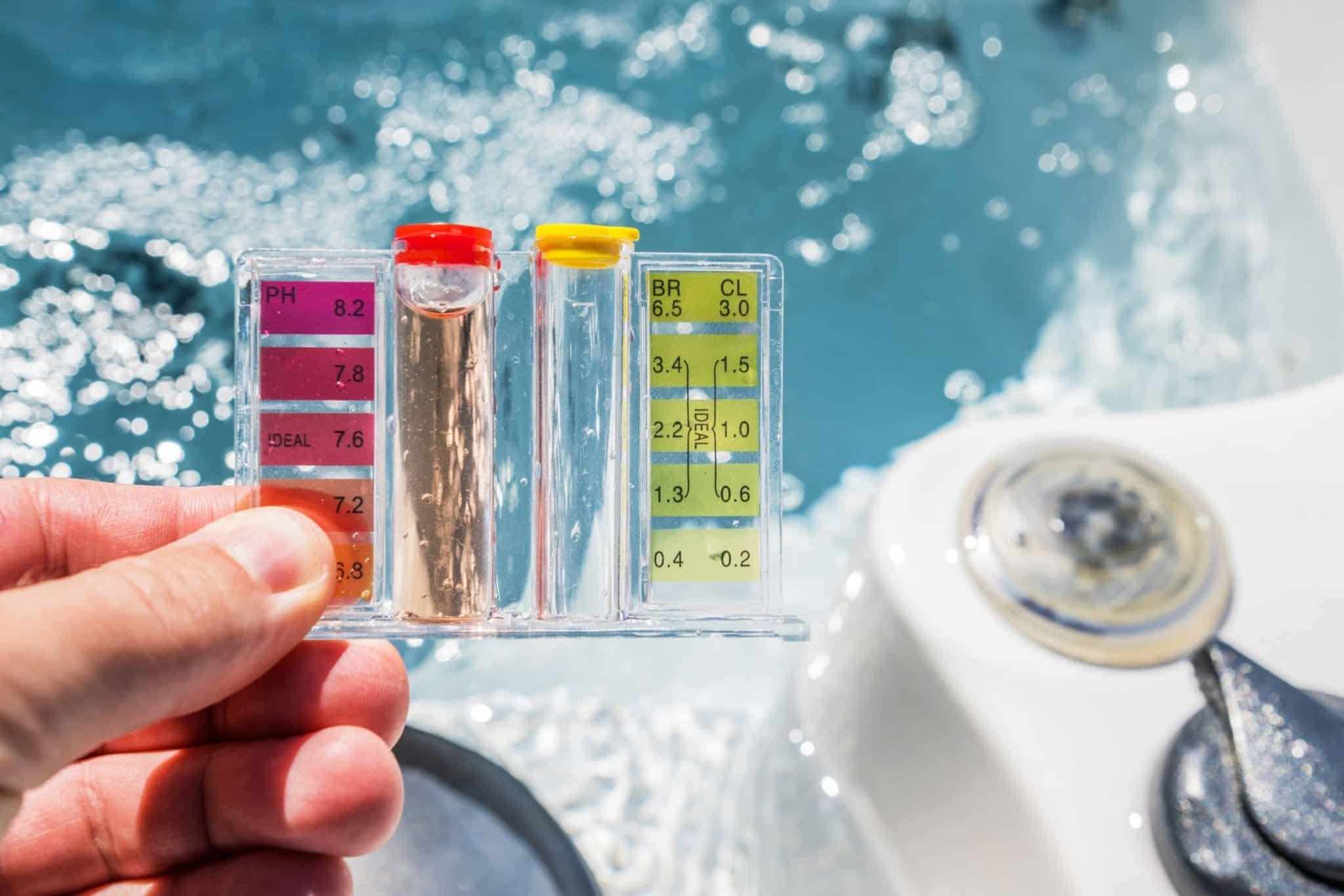
If you're a pool owner, you know the drill: keeping your pool sparkling clean is no small task, and chemical questions are always part of the equation. One of the most important of those questions is which sanitizing chemical to use—bromine or chlorine? You may have heard reasons to use one or the other, but in this post the Atlanta pool care experts at Captains break down the difference and the factors to consider when choosing a sanitizing chemical.
Chlorine is the tried-and-true superstar of pool sanitizers. It's been around for decades, and for good reason. When added to your pool, it works its magic by killing bacteria and other harmful microorganisms, ensuring the water stays safe and clean for swimmers. Chlorine also helps break down organic matter, like sweat, sunscreen, and even pee (yep, it does that too).
But even heroes have their flaws. Chlorine can cause skin and eye irritation for some swimmers, and if you’ve ever gotten a whiff of that strong, chemical smell, you know it’s not the most pleasant experience. Finally, it’s important to be aware that chlorine can degrade over time when exposed to intense and prolonged sunlight, so if you opt for chlorine, you'll need to keep checking chlorine levels to make sure everything is balanced (or you might find yourself with green pool water).
Bromine is like chlorine’s quieter, less flashy cousin—still a powerful disinfectant, but with a gentler touch. Bromine works in a similar fashion as chlorine, eliminating bacteria, algae, and other contaminants in the water. However, bromine doesn’t break down as quickly in the sunlight, making it a great choice for pools that get a lot of exposure to the sun. Plus, it tends to have a milder, less pungent smell, which is a huge bonus for those who dislike the chlorine odor.
While bromine’s gentler nature is a plus for some, it is typically more expensive than chlorine. And while it’s great at keeping your pool sanitized, bromine does require more regular monitoring and can be a little tricky to balance.
Selecting the appropriate sanitizing chemical is a nuanced process influenced by factors such as water temperature, pool usage, environmental conditions, and the specific chemical interactions unique to each pool. It’s a good idea to speak to an expert first.
For example, depending on the environmental context, using bromine will likely increase the need for non-chlorine oxidizers to manage organic waste, while chlorine may require regular testing for stabilizer levels like cyanuric acid to prevent degradation from sunlight. Additionally, the interaction of these chemicals with algaecides, water hardness agents, and pH adjusters means even minor miscalculations can cascade into costly and time-consuming maintenance issues.
Given these and other complexities, as well as the general frustration that comes with routine pool maintenance, it’s understandable if you’d rather tell pool care tasks to walk the plank. Captains Pool Care offers responsive and modern pool care service designed to fit the needs of any pool owner—plus, ask about our free chemicals that come with our service! For questions or to set up your worry-free pool cleaning and maintenance service in Atlanta, contact the Captain today!